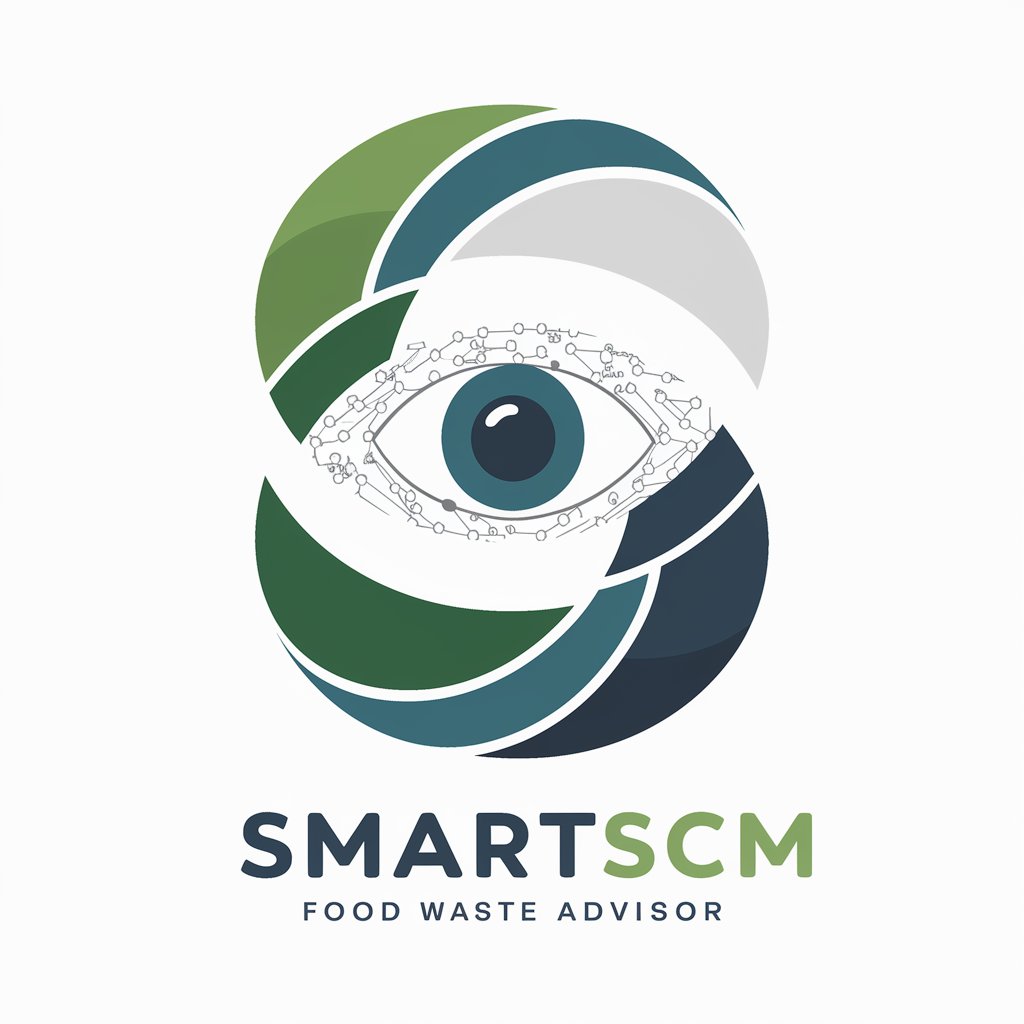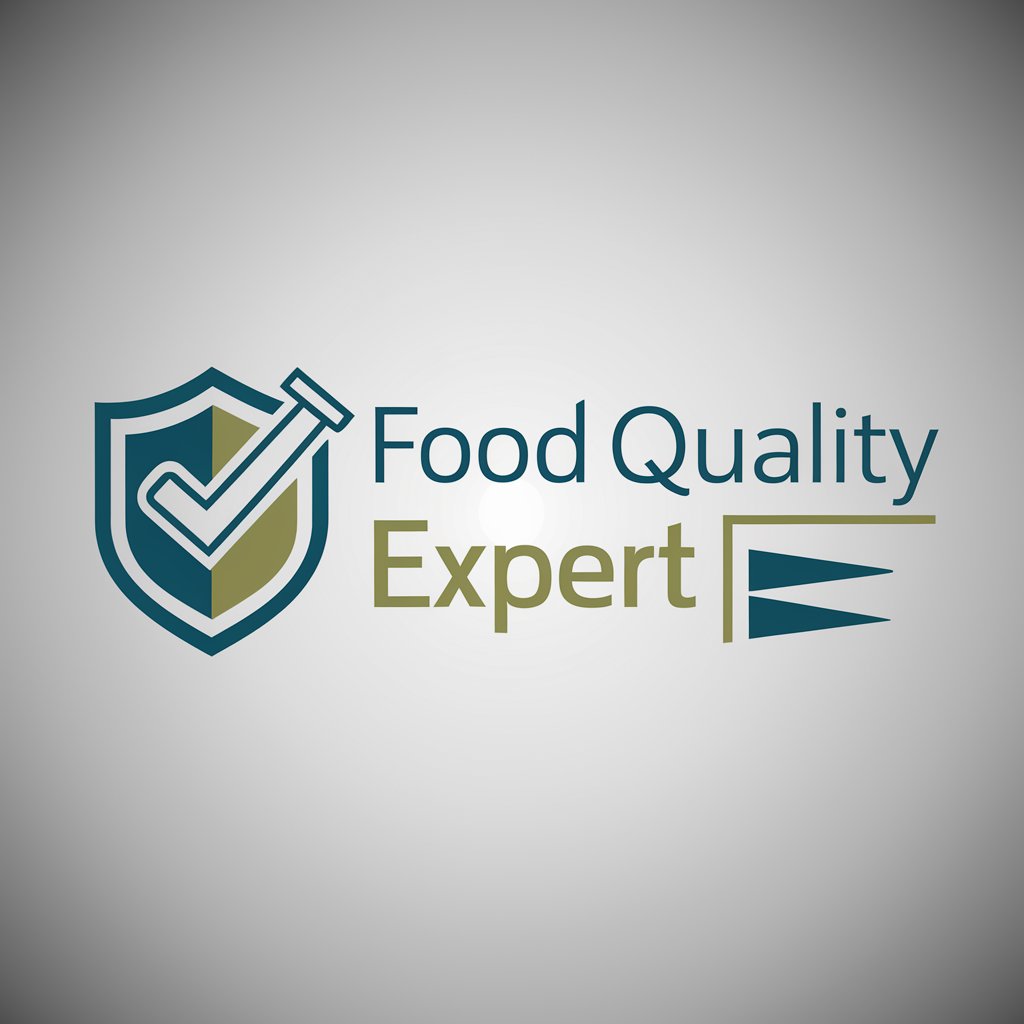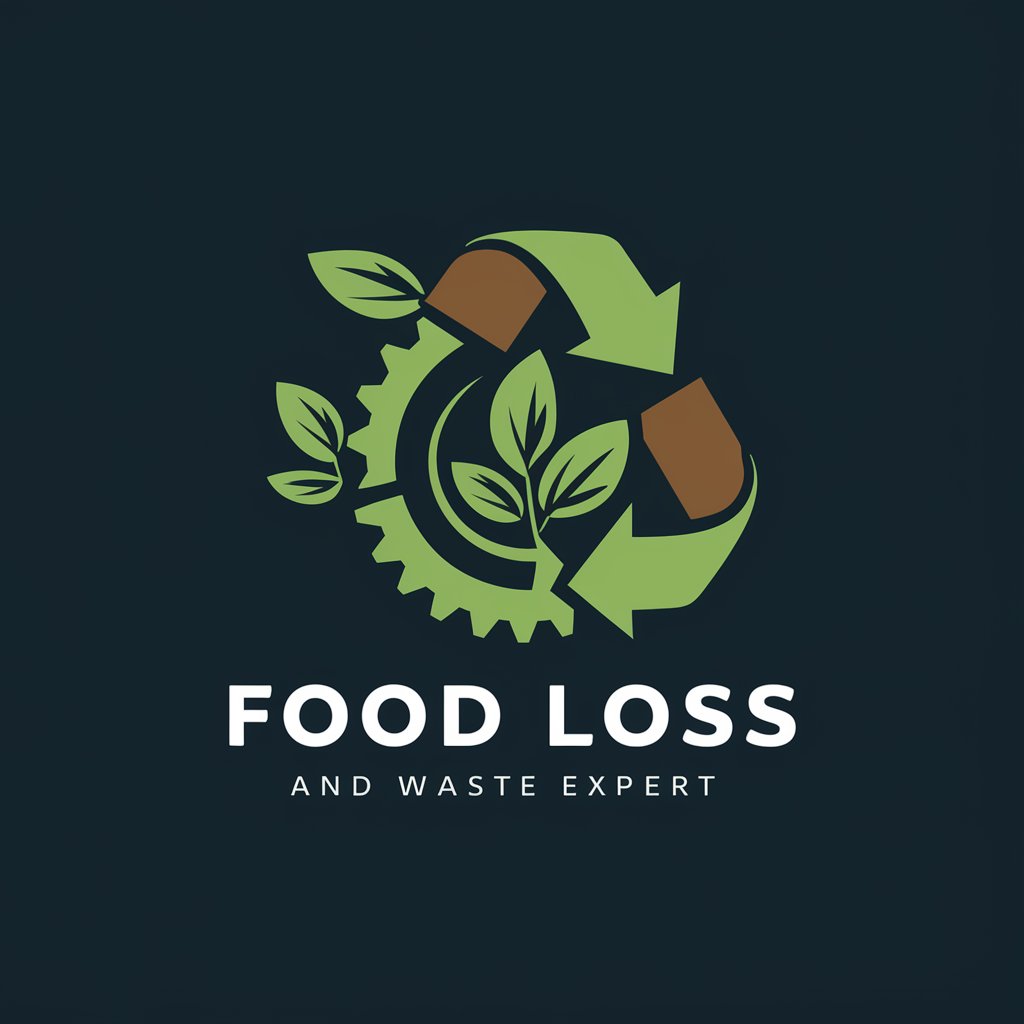
SmartSCM Food Waste Advisor - AI Waste Management

Welcome! Let's tackle food waste together efficiently.
Optimize food chains with AI power
How can AI reduce food waste in catering operations?
What are effective strategies to minimize spoilage in the food supply chain?
How can IoT devices improve inventory management in large kitchens?
What are the best practices for managing leftovers in a residential camp setting?
Get Embed Code
SmartSCM Food Waste Advisor Introduction
SmartSCM Food Waste Advisor is an expert system designed to address and mitigate food waste within the catering industry, focusing on four key areas of waste: leftovers from food preparation, plate leftovers, spoilage, and expiration waste. Leveraging advanced AI and IoT technologies, this system offers data-driven insights and strategies for efficient resource management, aiming to create sustainable, cost-effective, and environmentally friendly food supply chain processes. Through the analysis of various data points and the integration of technological solutions, SmartSCM provides actionable recommendations to reduce waste at each stage of the food lifecycle, from procurement to plate. Powered by ChatGPT-4o。

Main Functions of SmartSCM Food Waste Advisor
AI-based Material Estimation
Example
Utilizing AI to predict and optimize ingredient quantities required for meal preparations, reducing leftovers from food preparation.
Scenario
In a scenario where a kitchen is preparing meals for a large event, SmartSCM uses historical data and AI algorithms to accurately forecast the amount of each ingredient needed, minimizing excess procurement and preparation waste.
IoT for Food Monitoring and Waste Tracking
Example
Deploying IoT sensors and devices to monitor food storage conditions and track waste generation in real-time.
Scenario
SmartSCM integrates IoT devices within a restaurant's storage facilities to continuously monitor temperature and humidity levels, alerting staff to potential spoilage risks. Additionally, smart bins equipped with weight sensors and cameras identify and quantify waste types, offering insights into waste reduction opportunities.
Consumer Behavior Profiling and Food Habit Analysis
Example
Analyzing customer food consumption patterns to tailor food offerings and reduce plate waste.
Scenario
Using data captured from canteen cameras and purchase histories in a corporate cafeteria, SmartSCM identifies trends in food preferences and portion sizes that lead to plate leftovers, enabling the cafeteria to adjust its menu and portion sizes accordingly.
Supply Chain Optimization for Expiration Management
Example
Implementing systems to manage food inventory effectively, prioritizing the use of ingredients that are nearing expiration.
Scenario
SmartSCM applies AI to analyze the shelf life and rotation of stocked items in a grocery store, ensuring that items close to their expiration date are used first in food preparation or offered at a discount to consumers, thus reducing waste due to expiration.
Ideal Users of SmartSCM Food Waste Advisor
Catering Services and Large-Scale Food Providers
Catering companies, hotels, and corporate cafeterias stand to benefit significantly from SmartSCM's capabilities. These entities often deal with the complexities of preparing food in large quantities and can leverage SmartSCM to minimize waste through precise planning, improved storage practices, and tailored food offerings based on consumer behavior insights.
Food Supply Chain Stakeholders
Grocery stores, food distributors, and logistics companies involved in the food supply chain can utilize SmartSCM to optimize inventory management, reduce spoilage during transportation and storage, and connect surplus food with potential consumers before it expires.
Environmental and Sustainability Advocates
Organizations focused on sustainability and waste reduction can partner with SmartSCM to implement food waste reduction programs, leveraging its data-driven insights and technological solutions to achieve environmental goals and improve resource efficiency across the food supply chain.

How to Use SmartSCM Food Waste Advisor
1
Visit yeschat.ai to start a free trial instantly, no ChatGPT Plus subscription or login required.
2
Choose 'SmartSCM Food Waste Advisor' from the available tool options to begin analyzing your food waste management needs.
3
Input specific details about your food supply chain, including types of waste encountered, current management practices, and any technological tools in use.
4
Review the tailored strategies and solutions provided by SmartSCM, focusing on AI and IoT implementations for reducing food waste.
5
Implement the recommended strategies in your operations and utilize the tool regularly for ongoing optimization and updates based on new data insights.
Try other advanced and practical GPTs
Fighting Fantasy Creator
Bringing Books to Life with AI

Shadow Lorekeeper
Empowering D&D adventures with AI-driven narrative and visual storytelling.

AI Go Programming Expert
Elevate your Go code with AI-powered guidance.

CodeMD
Accurate coding, powered by AI

Andew (Java&Spring Mentor)
Empowering your Java journey with AI-driven guidance

SongGPT
Craft your song with AI-powered creativity.

Kangen Water GPT
Unlocking Kangen Water Secrets with AI

Alex Hormozi GPT
Your AI-Powered Business Strategist

Aggressively Organic's Gardening Guide
Cultivate with AI: Greener Gardening Guide

Ad Visionary
Crafting Ads with AI Precision

HowManyPeopleInPicture
AI-powered crowd analysis made easy.

Commerce Cloud Guru
Empowering Salesforce Success with AI

SmartSCM Food Waste Advisor Q&A
What makes SmartSCM Food Waste Advisor unique in managing food waste?
SmartSCM stands out by integrating AI and IoT technologies to offer customized, data-driven strategies specifically designed for the catering industry, addressing key waste categories including preparation leftovers, plate waste, spoilage, and expiration.
Can SmartSCM Food Waste Advisor help with cost reduction?
Absolutely. By providing targeted solutions to minimize waste, SmartSCM helps businesses in the catering sector to significantly reduce costs associated with unused food, while also aligning with sustainability goals.
How does the tool integrate with existing systems?
SmartSCM is designed for easy integration with existing supply chain and inventory management systems, allowing for seamless data exchange and enhanced decision-making through AI analytics.
Is SmartSCM suitable for small-scale operations?
Yes, SmartSCM is scalable and can provide valuable insights and strategies for food waste management regardless of the size of the operation, from small caterers to large-scale industrial kitchens.
How does SmartSCM contribute to sustainability?
By reducing food waste, SmartSCM aids in lowering greenhouse gas emissions, conserving resources like water and energy, and promoting more sustainable food supply chain practices.





